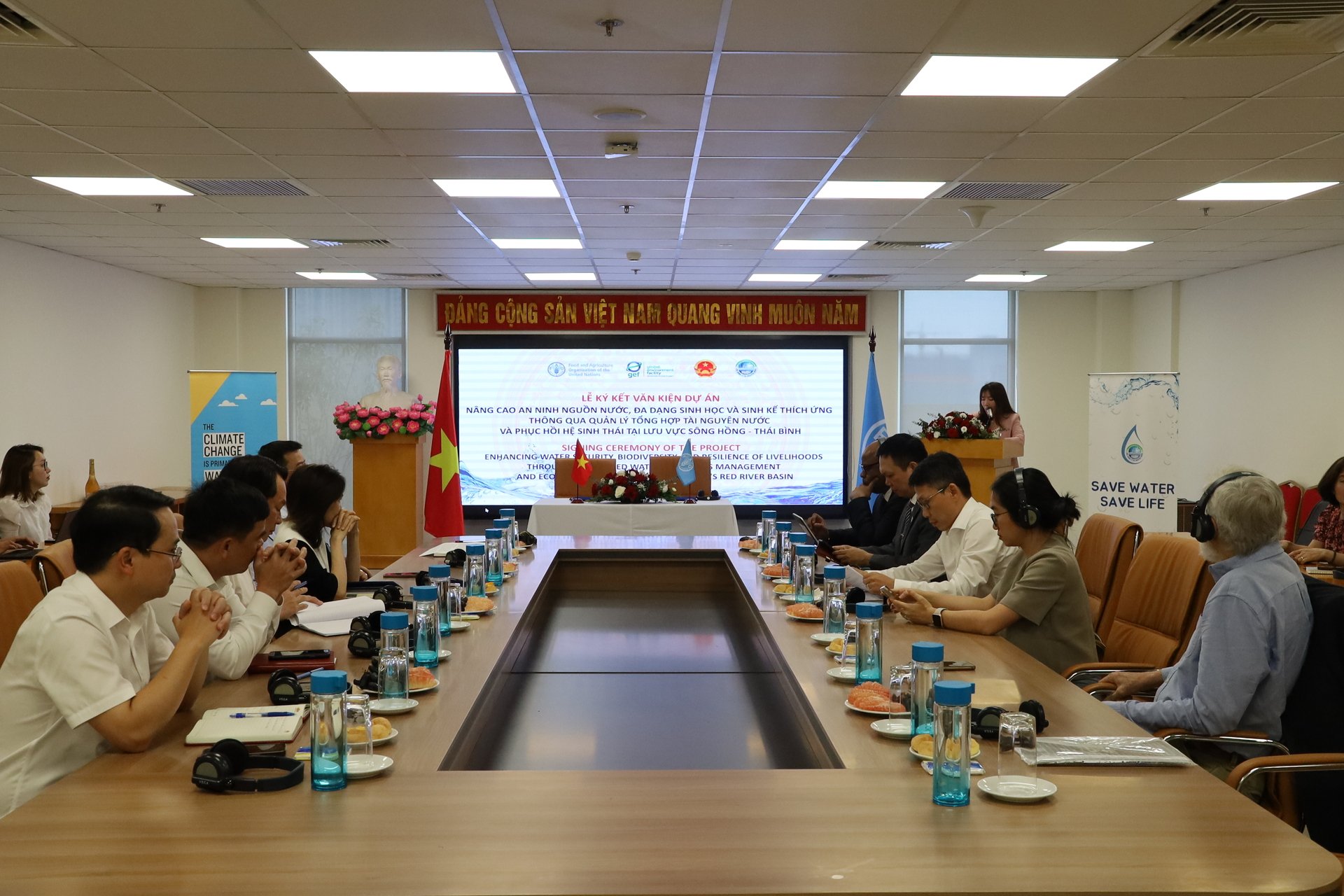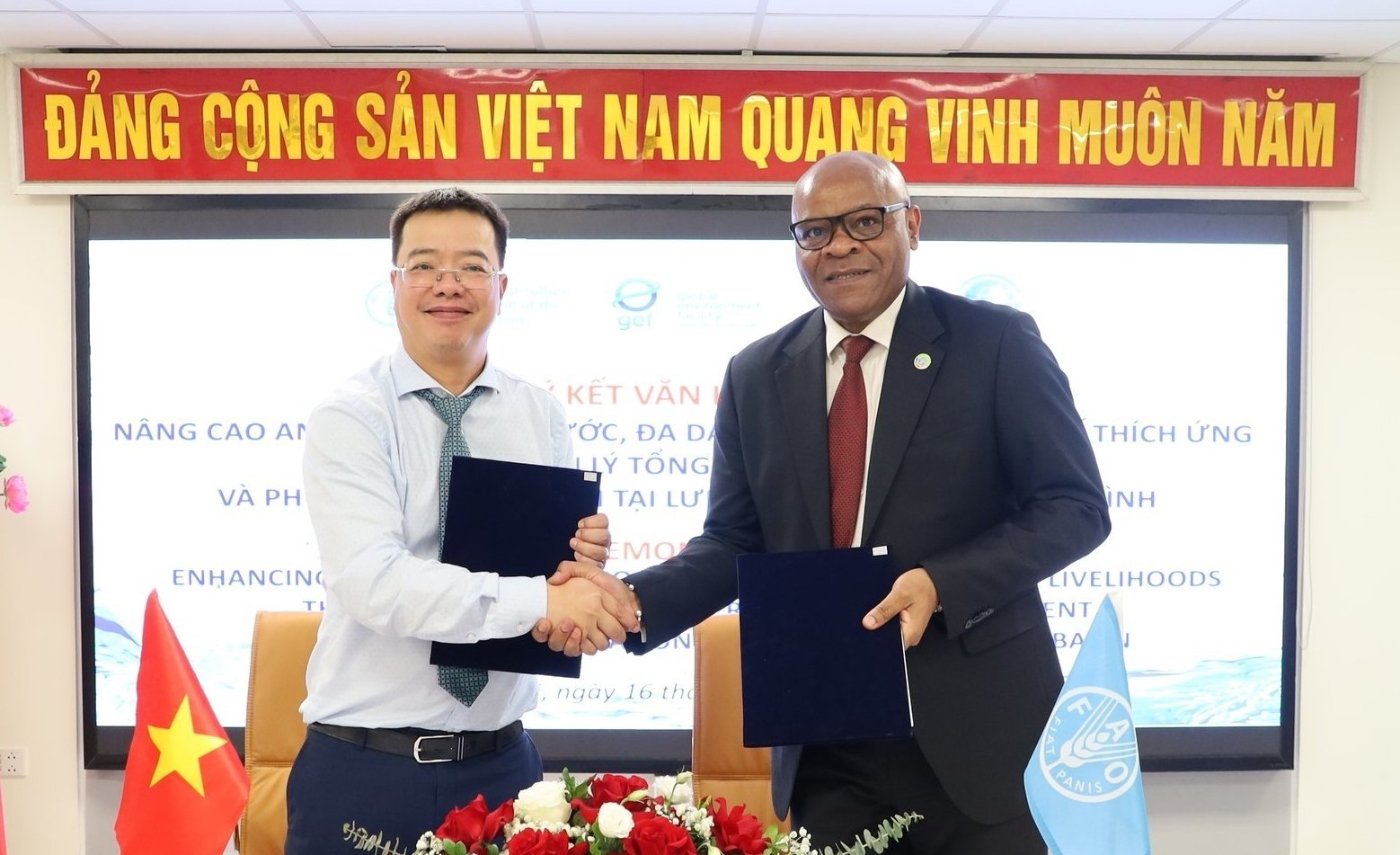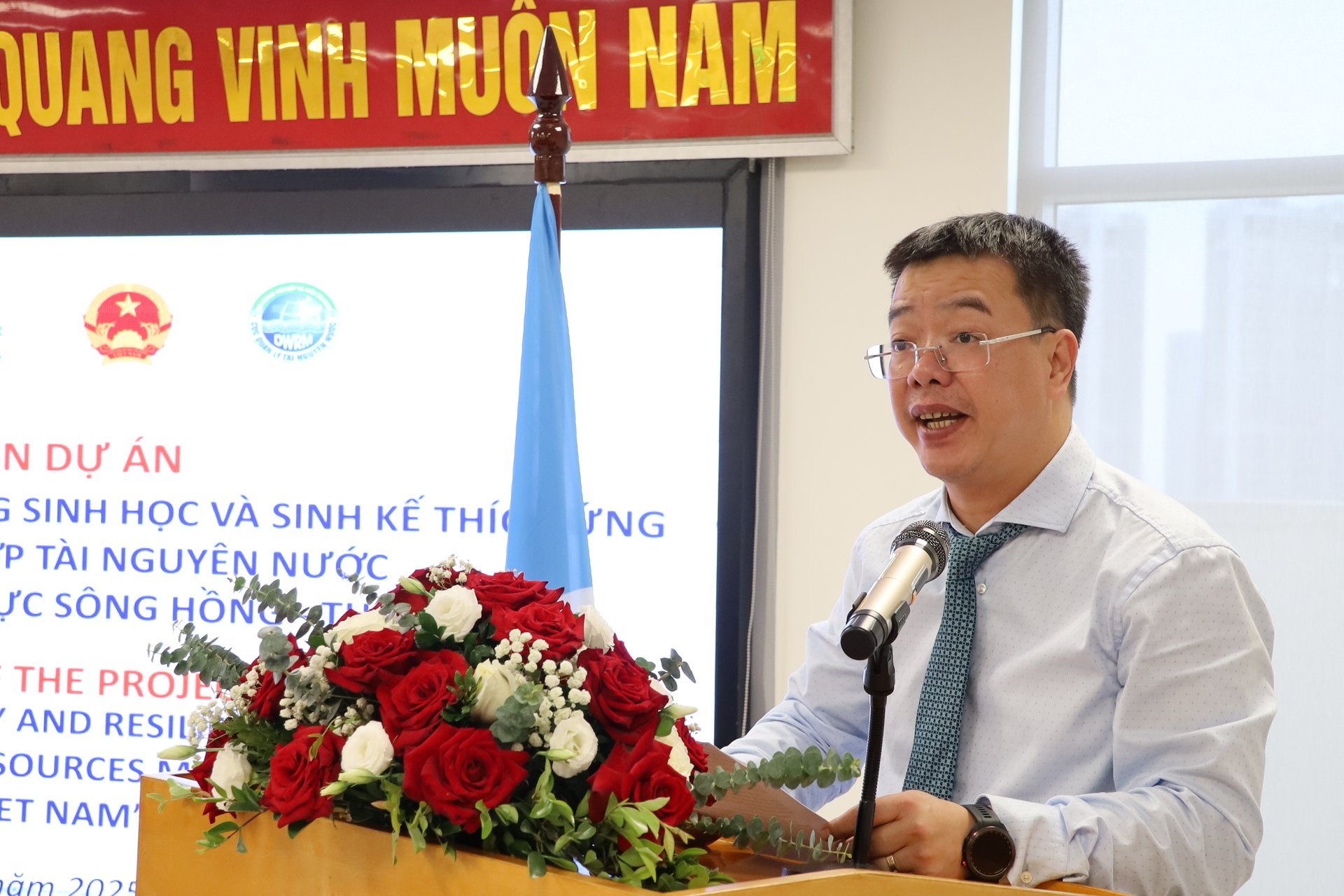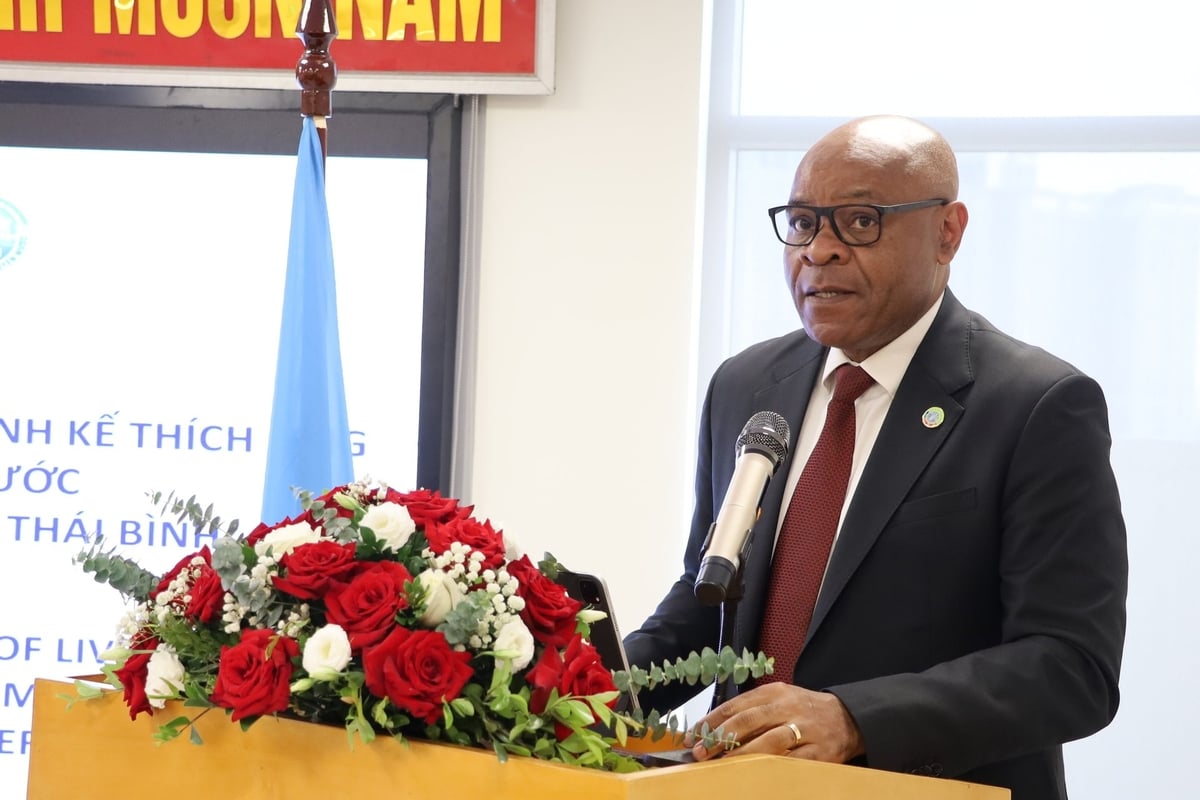December 12, 2025 | 07:36 GMT +7
December 12, 2025 | 07:36 GMT +7
Hotline: 0913.378.918
December 12, 2025 | 07:36 GMT +7
Hotline: 0913.378.918

An overview of the signing ceremony for the GEF-8 project document: 'Enhancing water security, biodiversity and resilience of livelihoods through integrated water resources management and ecosystem restoration in Viet Nam’s Red River basin.' Photo: Phuong Linh.
On May 16, the Department of Water Resources Management, in collaboration with the Food and Agriculture Organization of the United Nations (FAO), held a signing ceremony for the GEF-8 project document titled “Enhancing water security, biodiversity and resilience of livelihoods through integrated water resources management and ecosystem restoration in Viet Nam’s Red River basin.”
The GEF-8 project is developed based on integrated scientific foundations, inclusive governance, and respect for the unique environmental and cultural characteristics of the Red River basin. By restoring and protecting critical ecosystems, the project empowers communities and encourages the participation of women and ethnic minorities in sustainable land and water management, thereby promoting social equity and improving the effectiveness of natural resource protection.

Director General of the Department of Water Resources Management, Chau Tran Vinh (left), and FAO Representative in Vietnam, Rémi Nono Womdim (right), sign the project document. Photo: Phuong Linh.
Speaking at the signing ceremony, Director General of the Department of Water Resources Management Chau Tran Vinh expressed his appreciation for the support and cooperation from the Global Environment Facility (GEF) Office in Vietnam, the Food and Agriculture Organization of the United Nations (FAO), the International Centre for Environmental Management (ICEM), and other partners who have continuously accompanied the project, aiming toward the shared goal of sustainable water resources development.
"Today’s signing of the project document is not only an important milestone in the cooperation process but also an opportunity for all parties to exchange ideas and align implementation approaches to ensure the project’s effectiveness, quality, and long-term sustainability. It also opens up further potential for collaboration in water resources management,” said Director General Chau Tran Vinh.

Director General of the Department of Water Resources Management Tran Chau Vinh stated that the signing of the project document marks an important milestone in the cooperation process. Photo: Phuong Linh.
Rémi Nono Womdim, the FAO Representative in Vietnam, emphasized that the project is a clear demonstration of the strong and enduring collaboration between the Government of Vietnam, FAO and GEF.
“This project has played an important role in enhancing institutional coordination and aligning policies among the key stakeholders. Furthermore, it ensures that the interventions and actions taken are effective and tailored to Vietnam’s national priorities. Additionally, the project aligns with Vietnam's environmental commitments on the international stage, particularly its contributions to global environmental goals,” stated Mr. Rémi Nono Womdim.

Mr. Rémi Nono Womdim, FAO Representative in Vietnam, highly appreciated the strong partnership between the Government of Vietnam, FAO, and the GEF. Photo: Phuong Linh.
The Red River – Thai Binh River basin, as one of the most important economic regions of Vietnam, is currently facing a range of significant challenges. These challenges include the impacts of development activities, environmental pollution, ecosystem degradation, and an imbalance in the use of water resources, all of which threaten the sustainability of the region's natural systems and resources.
In response to these pressing issues, under the framework of the GEF Integrated Ecosystem Restoration Program, the Department of Water Resources Management has worked in close partnership with the FAO to design and implement the GEF-8 project titled “Enhancing water security, biodiversity and resilience of livelihoods through integrated water resources management and ecosystem restoration in Viet Nam’s Red River basin.”
The project will be implemented across provinces within the Red River – Thai Binh River Basin, including: Ha Giang, Lao Cai, Lai Chau, Dien Bien, Son La, Hoa Binh, Phu Tho, Tuyen Quang, Yen Bai, Lang Son, Thai Nguyen, Bac Kan, Bac Giang, Quang Ninh, Hai Phong, Hai Duong, Ninh Binh, Thai Binh, Nam Dinh, and Hanoi (excluding communes located in border areas and other areas not permitted under current regulations).
The GEF-8 project aligns with the objectives of the UN Decade on Ecosystem Restoration (2021-2030) and contributes to Vietnam’s efforts in achieving the UN Sustainable Development Goals (SDGs). Furthermore, it supports the country’s commitments to international conventions on climate change, biodiversity conservation, and the fight against desertification. The Minister of Agriculture and Rural Development officially approved the project document through Decision No. 1055/QD-BNNMT on April 23, 2025.
Translated by Phuong Linh

(VAN) The Sustainable Agricultural and Forestry Production Development Support Project in Angola is key to both advancing sustainable development and guaranteeing national food security.

(VAN) According to Deputy Minister Nam, women are as capable as anyone when granted the opportunity to experiment and innovate.

(VAN) Dr. Fred Unger, former Regional Representative of ILRI in Asia, is honored as a pioneering expert who helped establish Viet Nam’s One Health and risk-based approaches in food safety.

(VAN) By joining the carbon market, Hoang Lien National Park can reinvest revenues into conservation and improving community livelihoods.

(VAN) Bach Ma National Park will continue to conserve biodiversity in ASEAN, aligned with sustainable agriculture and environmental development goals.

(VAN) Pu Mat National Park is a green gem of Nghe An province, and its value is further elevated after being officially recognized as an ASEAN Heritage Park.

(VAN) EU expects Viet Nam to seize the chance and comply with green standards to make strong breakthroughs in exporting high-quality agricultural products.